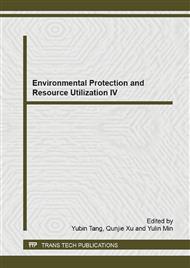[1]
Tingquan Zan, whole division of labor and cooperation: Economic Analysis System [J] Communication University of China, Natural Science . 2000, 23 (4): 60-63. In Chinese.
Google Scholar
[2]
Xiaoli Guo, stability of international energy cooperation research [D] Jilin University PhD thesis, 2012: 50-75. In Chinese.
Google Scholar
[3]
Xiaoli Guo, Yishan Zhang, stability based on cooperation CNKI reviewed literature analysis [J] modern intelligence, 2012 (11): 163-167. In Chinese.
Google Scholar
[4]
Michael Porter. Competition theory [M]. CITIC Publishing House, (2003).
Google Scholar
[5]
Xianming Yang, Ability to structure and what part of regional economic cooperation [M]. China Social Sciences Press, 2007. In Chinese.
Google Scholar
[6]
Ye Zhang, Gang Sunqing, Shanghai Cooperation Organization Structure analysis and evaluation capacity [J] Russia, Central Asia and Eastern Europe markets, 2011, 12 (1): 14-18. In Chinese.
Google Scholar
[7]
Hua Song , Lan Wang, close relationship with the relationship between the degree of flexibility the ability to supply [J] Tsinghua University: Philosophy and Social Sciences, 2008 (S2): 61-69. In Chinese.
Google Scholar
[8]
Fredrich Kahrl, David Roland-Holst Growth and structural change in China's energy economy Energy, 2009:. 894- 903.
DOI: 10.1016/j.energy.2009.03.009
Google Scholar
[9]
Kang Zhang, Cooperation is a common mode of action is different from the collaboration [J]. Literature and Philosophy, History, 2013, 5. In Chinese.
Google Scholar
[10]
Zhicheng Wang , Thermo dynamics • Statistical Physics Beijing: Higher Education Press, 2008: 3-6. In Chinese.
Google Scholar
[11]
Yali Zhang, Jiwei Li, Jilin Province Science and Technology Evaluation and enhance the competitiveness of enterprises Measures [M] Economic Daily Press: 40-47. In Chinese.
Google Scholar
[12]
Feng Tao, absorptive capacity, performance and innovation value chain type foundry alliance --- international knowledge spillovers based perspective [M] Chinese industrial economy, 2011, 1: 140-149. In Chinese.
Google Scholar
[13]
Donglin Song, Xiumei Lin, Chenglin Jiang, Northeast Innovation Capacity and industrial restructuring Strategies -- Based on Industrial Structure Evolution [M] Changchun Press, 2008, 5: 90-98. In Chinese.
Google Scholar
[14]
Xiaobin Wang, level gray comprehensive evaluation model of enterprise learning ability [J] Technology Progress and Policy, 2005, 8: 35-38. In Chinese.
Google Scholar
[15]
NEVISEC, DIBELLA AJ, GOULD JM Understanding organi-zations as learning system [J] . Sloan Management Review, 1995, 36 (2): 73 -95.
Google Scholar
[16]
GOHS, RICHARDS G. Benchmarking the learning capability of organizations [J] . European Management Journa, 1997, 15 (5): 575 -583.
DOI: 10.1016/s0263-2373(97)00036-4
Google Scholar
[17]
Zhicheng Xu, Enterprise technological innovation ability and level indicators Evaluation System Construction Chung sublime [J] Hohai University, 2011, 12: 78-81. In Chinese.
Google Scholar
[18]
Qiang Shao, Youjun Li, Qingwang Tian, comprehensive evaluation index system construction method [J] Daqing Petroleum Institute, 2011, 6: 74-123. In Chinese.
Google Scholar


